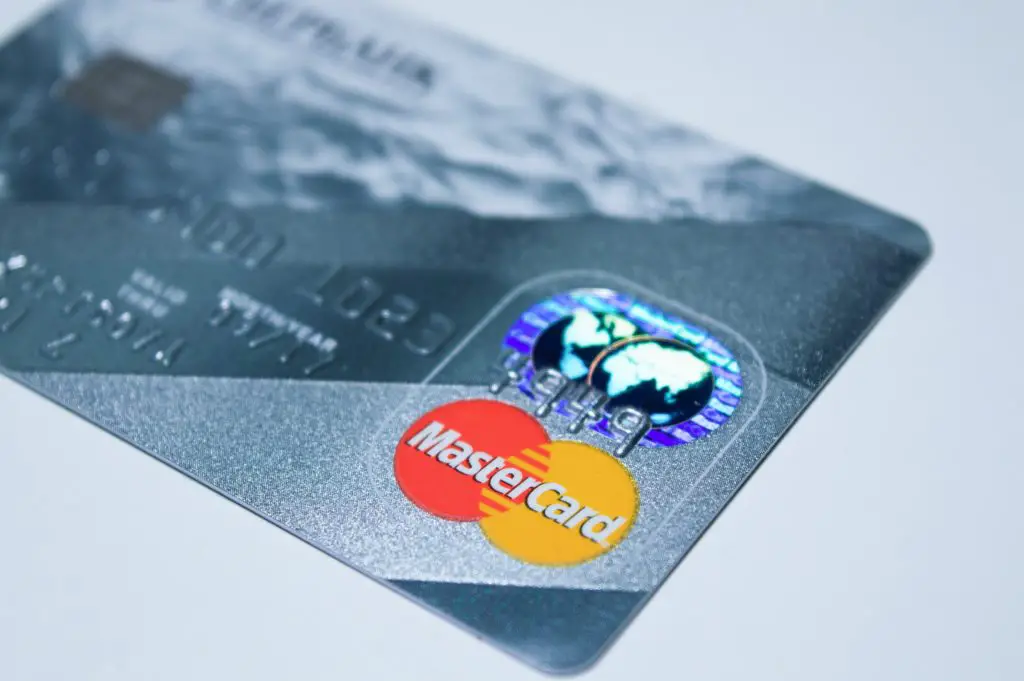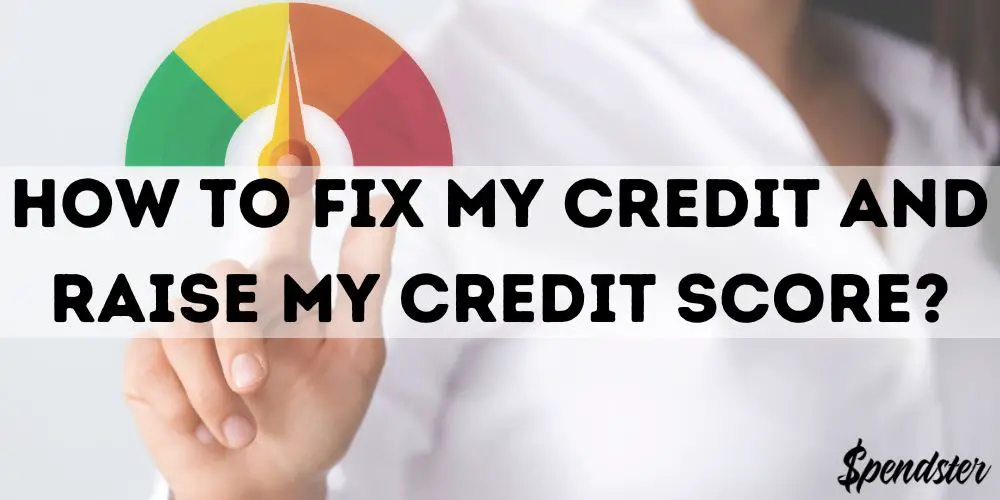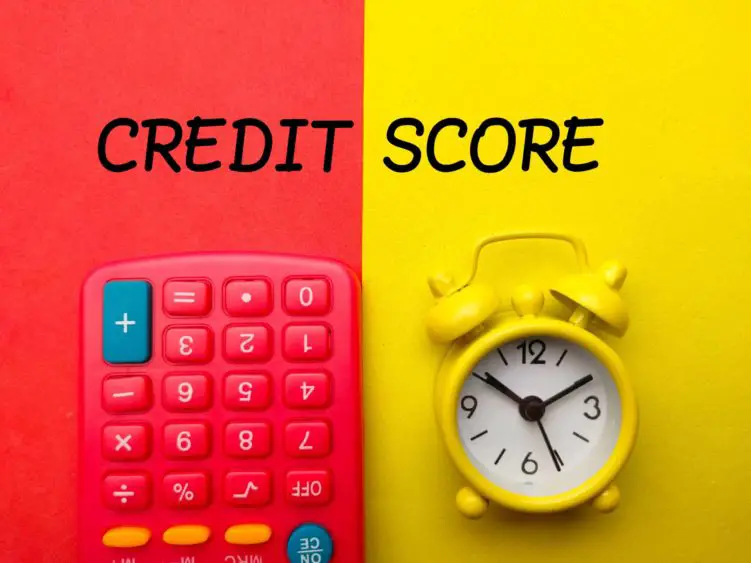550 Credit Score – What Does It Mean For Your Creditworthiness?
Whether you wish to apply for a new credit card, car loan, or mortgage loan, your credit score makes a big difference. It determines your creditworthiness, as well as affects the interest rates, so having a 550 credit score might hinder your chances at approval.
The research conducted by Experian states that the average credit score in the US is around a FICO 710 for the past few years. Still, don’t lose all hope just because your credit score fits into the less than ideal category – there are still ways of getting it improved and approved for credit. We’ll go over some of the main limits you might face with a FICO 550 score, as well as methods to take to improve it as fast as possible!
What Does The 550 Credit Score Mean?
The best way to start dealing with the problem is to understand your position with a 550 credit score. The FICO credit rating scale goes from 300 to 850, and it ranges as follows:
- Credit score FICO 300 to FICO 550 – Very Bad
- Credit score FICO 560 to FICO 650 – Bad
- Credit score FICO 660 to 700 – Fair
- Credit score FICO 700 to 750 – Good
- Credit score above FICO 750 – Excellent
So, if you have a 550 credit score, it’s a poor credit score but on the verge of getting to a slightly better level. However, you are still far away from a fair credit score in the range of 660 to 700.
I know, it’s a lot to process at once, but the overall conclusion from this list is – you’ll need to climb about 150 points to get an optimal credit rating. From a creditor’s perspective, you rank as a high-risk profile borrower that might be late with the payments if the credit is approved.
Because of this, even if you can get the loan, chances are that the interest rates will be high. On the other hand, your loan options will be quite limited, since not all the creditors will even consider you for the loan.
So, what’s your best move if you have a credit score of FICO 550 or somewhere around it? It’s credit repair, and you don’t even need to hire a professional for this. We’ll discuss some self-repair options you can take on your own, right after we get through some of the possible loan limitations.
Is Getting Approved For Credit With a 550 Credit Score Possible?
If you have a 550 credit score, it’s probably mostly due to late payments or collections on your accounts. These things don’t just repair themselves on your report, but it might not be your primary concern to repair the credit right away.
You might urgently need to consider your credit application options with your current score, and this guide should help you with that. It is possible to get a credit card or even a certain type of credit approved with a score of 550, but you’ll need to be aware of all factors:
Mortgage Applications With Credit Score 550
When thinking of credit applications, a mortgage is one of the first things that come to mind. However, you shouldn’t get your hopes up with this credit score level – it’s nearly impossible to get approved for a mortgage loan with a FICO score of 550.
In general, it takes at least 70-100 points more to get a mortgage loan, and even if you are able to find a lender with your current rating, your interest rates will be extremely high. So, it’s not a matter of whether you can get the loan or not – it’s whether it’s worth it.
Overall, the minimum credit score for mortgage loans in the US is around 620. That means you’ll have to do some credit repair before you consider this option.
Car Loans With Poor Credit
Well, at least the situation is slightly better with auto loans in case you have a credit rating of around FICO 550. That doesn’t mean it’s a financially smart decision to make, but if you are in urgent need of a car loan, you might be able to get it at higher interest rates.

Generally speaking, with a score of 550, you’ll fit into the subprime category for auto lenders. The “prime” category starts around FICO 660, so it takes significant credit repair to get there. Why is this important? Well, the interest rates for the subprime category of borrowers can go up to 9.41%, according to Investopedia.
That’s a major difference when compared to the near-prime interest of about 6%, and a prime interest of around 2.7% for buying a new car. When you look at it that way, it’s a much more beneficial move to go through credit repair first, and then pursue more convenient interest rates for an auto loan later.
Personal Loans For Credit Scores At or Under 550
It’s sort of a bright side for consumers with credit scores of 550 or below that you can at least get a personal loan. The emphasis is put on “sort of”, as these loans arguably come with the highest amounts of interest paid, especially for bad credit loans.
You still stand much better approval odds than with an auto loan or mortgage loan, but it all comes at a cost. Let’s talk APR-wise – you might end up paying anywhere from around 7% to 35% on average.
Sure, getting a personal loan can help you sort out your monthly expenses, but you’ll need to be aware of the risk. You can even secure a personal loan with online lenders, which is convenient and fast, but the interest paid is all that matters. It remains a type of loan that you stand the best chance of qualifying for with poor credit.
What About Applying For A New Credit Card?
Having poor credit doesn’t take you far in terms of credit card qualification either. Credit card issuers also consider your credit scores, and you can get much more convenient interest rate conditions with a higher score.
You can still qualify for certain credit card types with a bad credit rating – secured credit cards, student cards, or be an additional card member to someone else. Being an additional card member can help you build your credit and you are not even responsible for the payments, since that’s the concern of the primary card holder.
On the other hand, secured credit cards use your deposit as the credit line, so it’s one of the best options for making your 550 credit score jump to 600 or even more.
The Best Option For 550 Credit Score Improvement – Secured Credit Card
Now that you are aware of your chances of getting approved for different types of credit, let’s get to healing your rating, and what better way there is to start than with a secured credit card?

It can help you achieve a higher credit score as you’ll be making timely monthly payments, and it relies on your deposit as the credit line. Using a secured credit card will also result in monthly reports to the three credit bureaus, so your credit report might benefit fairly fast.
The good news is that the APR on these cards is usually extremely low if there’s any in the first place. On the other hand, it’s important to understand how it works for your benefit, as you don’t want to be late on payments with these cards.
In those situations, the payment value will be deducted from your security deposit, and it’s best to prevent it from happening. This way you can demonstrate that you can be responsible and pay your debts on time, and a secured credit card allows you to do it with minimum monthly payments.
It’s a great way to slowly get an unsecured credit card with a lower APR, and heal your credit score at the same time. The best thing is – the credit card issuer returns the initial deposit sum to you after you upgrade to an unsecured card or you close the account with timely payments.
Boosting Your 550 Score To An Optimal Level
While getting a secured credit card can help, there are also other ways you can improve your 550 credit score. Here are some of the best options you can use without having to hire a credit repair company:
- Start making timely payments on your bills
- Get a credit builder loan
- Lower your credit utilization
- Improve your credit mix
- Check your reports for errors
The first step is quite straightforward – you should start making on-time payments for the bills and any existing debt repayments. Although your credit score is low currently, it will gradually rise if you don’t miss any monthly payments in the future, so it’s the logical first step to take.
Using A Credit Builder Loan To Reach a Fair Rating
One way you can swiftly reach the fair credit rating range is through credit builder loans. It’s a long-lasting debate whether secured cards are better than credit builder loans, but it’s entirely up to you.
This type of loan is somewhat similar to secured credit cards. Instead of receiving the full loan amount, the lender will deposit it in the savings account, and you’ll be making monthly payments until that debt is fulfilled.
You just need to make sure that the credit union you are using submits reports to the three credit bureaus. This way, you can even earn some small interest through the savings account, and the credit reports will show your timely payment management.
Adjusting Your Credit Utilization
Making sure that your credit utilization rate is lower than 30% is another logical step to take to improve your 550 credit score. Even if you have a low credit score like this, it’s still possible to benefit from reduced credit utilization.
This means you should only spend up to 30% of your credit limit, and the results can be visible on your credit reports within a few months. The credit scoring system relies on the utilization ratio of 30% when forming your rating, so it can be one of the best moves you can make.
Spice Up Your Credit Mix
Having revolving credit through your credit cards, and installment credit can result in a decent credit mix that boosts your score. So, if you can make timely payments and adjust the utilization, you might qualify for an auto loan at more convenient interest rates.
This is one of the installment loans that you might lack, so the lenders will see how you can cope with both types of credit with timely payments. It adds up to another 10% in the FICO scoring model, and it affects your payment history as well.
Scan Your Credit Reports For Errors
Finally, there might be one easy fix for your 550 credit score, and it’s checking your credit reports for possible errors. You can get free credit reports from all three credit bureaus to compare them and see if any negative listings could be disputed.

Hard checks are usually the items you should be looking for, as you might be able to remove any unauthorized inquiries, and swiftly boost your score from 550 to a fair credit range.
Final Thoughts
With a 550 credit score, you might have a hard time qualifying even for personal loans, let alone mortgage loans and low-interest car loans. Luckily, this guide can lead you through the process of repairing your credit score and introduce you to the limits of having a lower rating.
Even if you can apply for loans with high interest paid, it’s always a much better option to repair your credit with timely payments, lower utilization, and secured cards. This way, you can get your credit score on a much higher level than FICO 550, and pay less in interest on loans.
Frequently Asked Questions (FAQ):
Can I get a loan with a credit score of 550?
If you have a 550 credit score, your credit history probably includes missed due dates for payments or even collection accounts. This is an instant red flag for creditors, so you’ll have a hard time qualifying for a loan, and even if you qualify, you’ll have higher interest rates to pay.
What’s a good credit score level?
The 550 credit score level counts as a poor rating, while the fair credit score starts from FICO 660. However, if you wish to get your credit score optimized for convenient loan terms, you’ll have to raise it above FICO 700, while a score over 750 can be considered excellent.
What is the best way to improve your 550 credit score?
One of the best ways to improve a 550 credit score is through credit card companies that offer secured cards. On the other hand, you can also get a credit builder loan, lower your utilization, and start making timely payments every month to gradually build up your credit score.
What’s an average credit score in the US?
For the past few years, an average credit score in the US was around FICO 710. Still, that’s just the entry point of what’s considered to be a good credit score, and it might take some time for you to climb from 550 to the average score.



